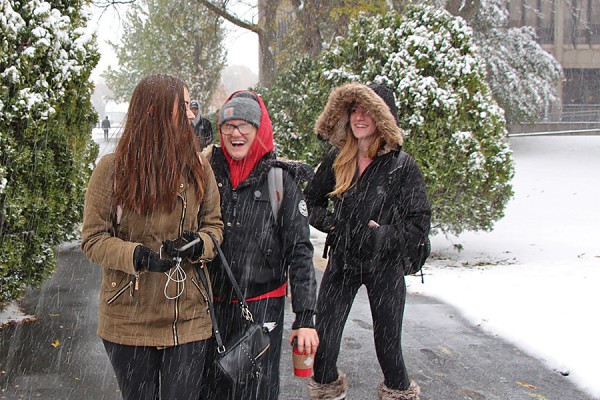 A breathing exercise helps to improve focus during an online class in nursing leadership.
A breathing exercise helps to improve focus during an online class in nursing leadership.
The COVID-19 pandemic has presented challenges for everyone, says nursing professor Michelle Freeman. In response, she has introduced a new teaching intervention called “Breathing Breaks” in her online leadership class.
Developed and facilitated by Ottawa-based consultant Rachel Freeman, the practice is a fun and easy breathwork series designed to promote focus, stress-resilience, and engagement in the online learning environment.
“We need to acknowledge that we’re all vulnerable to high stress levels right now, where our body can easily become stuck in a continuous state of fight-or-flight response, the body’s normal response to danger,” says Michelle Freeman. “This abnormal state of chronic stress can result in high blood pressure, suppress our immune system, and contribute to insomnia, anxiety, and depression.”
She notes it can create challenges in focus and learning, and adds: “Students in our graduate programs are also working on the frontlines during this pandemic, making them especially vulnerable to high levels of stress and in need of extra support.”
The sessions included active guided breathwork practices and practical tips to improve mindfulness and mental well-being. Each was under 25 minutes long, providing a fast introduction to the benefits of breathwork and meditation for people who usually do not meditate.
After five weeks of the program, Dr. Freeman conducted a survey to evaluate the experience. She calls the student comments “inspiring,” with respondents sharing that the sessions increased their feelings of calm, relaxation, and even happiness.
“Completing breathing breaks at the beginning of the class allowed me to declutter my thoughts and focus on the tasks at hand in class discussions,” wrote student Jessica Francis. “Work and daily life, especially in the midst of COVID-19, has been incredibly stressful and I often found my brain too overwhelmed to be able to focus.”
Her classmate Jennifer Tebbens said she was initially reluctant to participate.
“But as the weeks went on, I started to look forward to the breathing exercises,” she said. “It was a way to ease into class, take a moment to be grateful for important things that matter.”
Freeman notes that half of the students said they are now using these breathing practices outside of the class.
“This is exactly what we wanted to achieve as a learning outcome,” she said. “Application outside the classroom should result in greater stress-resilience and improved focus.”




